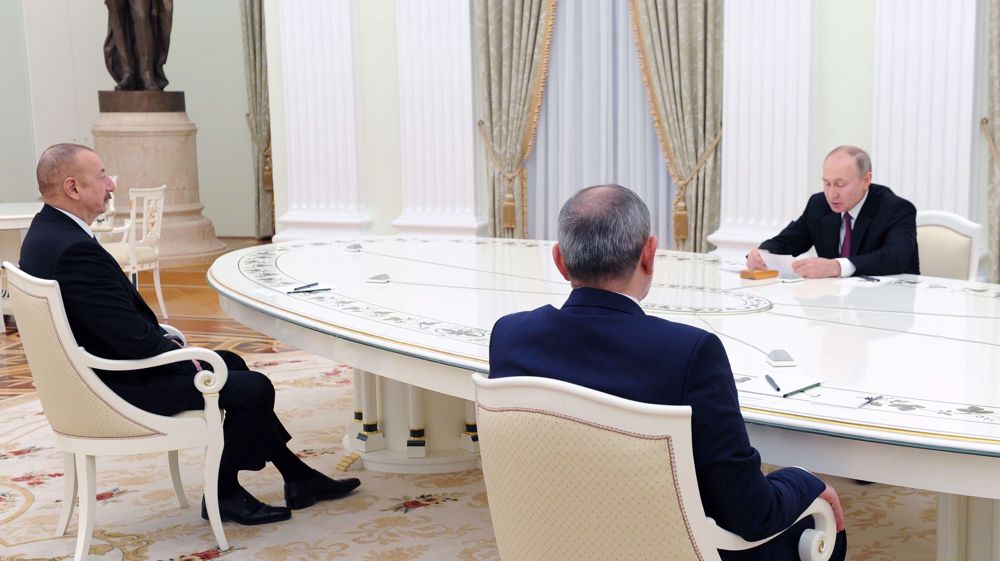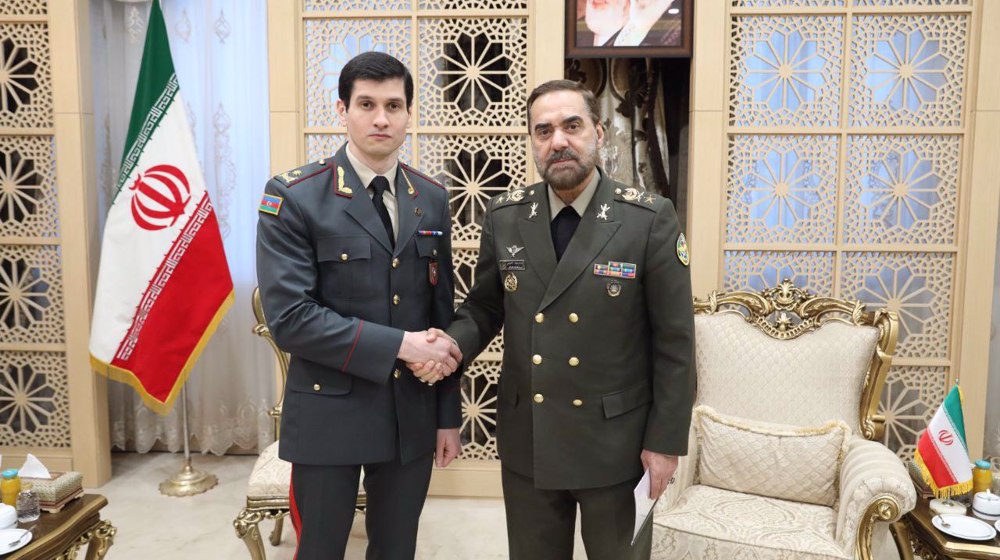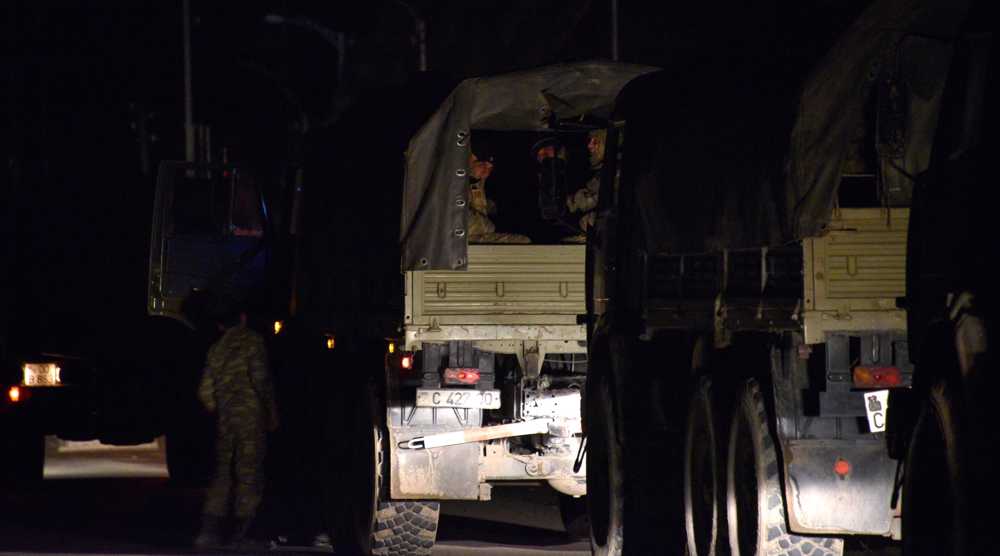Putin hosts Armenia, Azeri leaders to discuss 'next steps' in Nagorno-Karabakh peace deal
Russian President Vladimir Putin has held a trilateral meeting with leaders of Armenia and Azerbaijan to discuss further steps in a Moscow-brokered peace deal that ended six weeks of fierce fighting over Nagorno-Karabakh.
The meeting, which was held in the Russian capital Moscow on Monday in an effort to resolve problems that risk undermining the deal, was the first summit between Armenian Prime Minister Nikol Pashinyan and Azerbaijan President Ilham Aliyev since the conflict ended in the disputed region.
"Trilateral agreements are being progressively implemented”, Putin said, adding, "We are convinced that this creates necessary conditions for the long-term and full-fledged settlement of a decades-old conflict on the basis of justice, in the interests of both the Armenian and Azeri peoples.”
He also said it is time to discuss "next steps" in the peace agreement, including the work of Russian peacekeepers stationed in Karabakh, demarcation lines and humanitarian issues.
The Russian president further thanked his counterparts from Armenia and Azerbaijan for their cooperation with Moscow’s mediation efforts aimed at "stopping the bloodshed, stabilizing the situation and achieving a sustainable ceasefire."
Nagorno-Karabakh, home to ethnic Armenian people, is internationally recognized as Azerbaijani territory, but it has been under the control of Armenian-backed separatists since the early 1992, when they broke from Azerbaijan in a war that killed some 30,000 people.
The latest conflict erupted in late September last year, becoming the worst fighting in the region in decades.
Following the flare-up, Russia brokered two ceasefires to bring to an end the deadly conflict, but its efforts to bring peace to the mountainous region failed as Yerevan and Baku continued to violate the agreements.
After six weeks of deadly fighting in and around Karabakh, Yerevan and Baku eventually agreed on November 9 to end hostilities under a Moscow-brokered deal that secured territorial advances for Azerbaijan in Karabakh and seven surrounding districts.
The agreement ended weeks of heavy fighting that left at least 2,400 people dead and displaced tens of thousands.
The deal was signed after the Azerbaijani army overwhelmed Armenian forces and threatened to advance on Karabakh’s main city of Khankendi, which Armenians have renamed Stepanakert after a 19th-century Bolshevik militant.
As part of the ceasefire, nearly 2,000 Russian peacekeepers have been stationed along the Lachin corridor in Azerbaijan, a 60-kilometer route that links Khankendi to Armenia.
The truce, which was warmly welcomed as a victory in Azerbaijan, prompted anger in Armenia, with protesters demanding the resignation of Pashinyan.
Pashinyan said at the time he had no choice but to sign the agreement to prevent what he called “total collapse.”
Armenian Foreign Minister Zohrab Mnatsakanyan was also forced to resign.
VIDEO | 85% of Yemeni displaced people face daily hunger crisis
US House passes bill targeting charities and pro-Palestine groups
VIDEO | Supporting Gaza genocide
Hezbollah attacks Israeli forces after Lebanese homes blown up
World leaders, states hail ICC arrest warrants for Netanyahu, Gallant
MP: US accountable for possible Israeli 'foolishness' to attack Iraq
VIDEO | Israeli policies strangle Palestinian agriculture, economy
Iran's president offers condolences to Pakistan over terrorist attack















 This makes it easy to access the Press TV website
This makes it easy to access the Press TV website